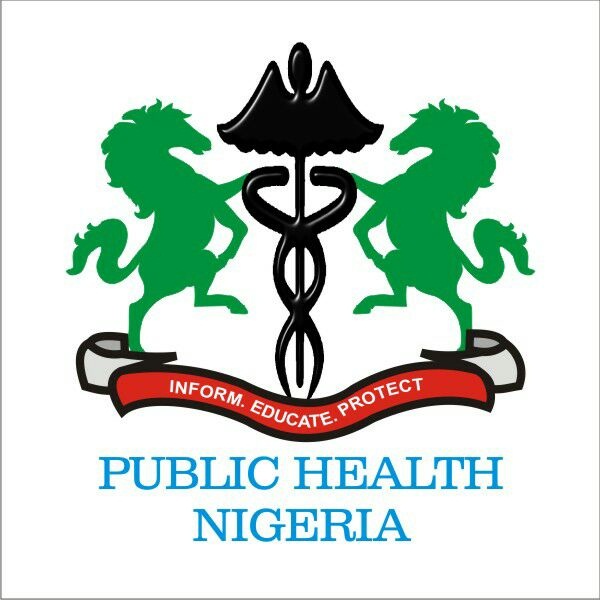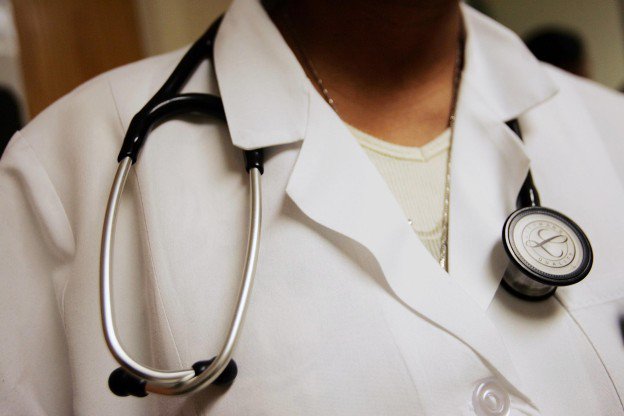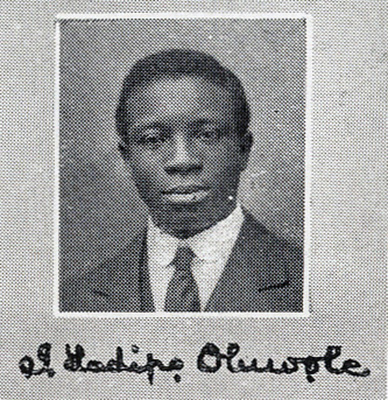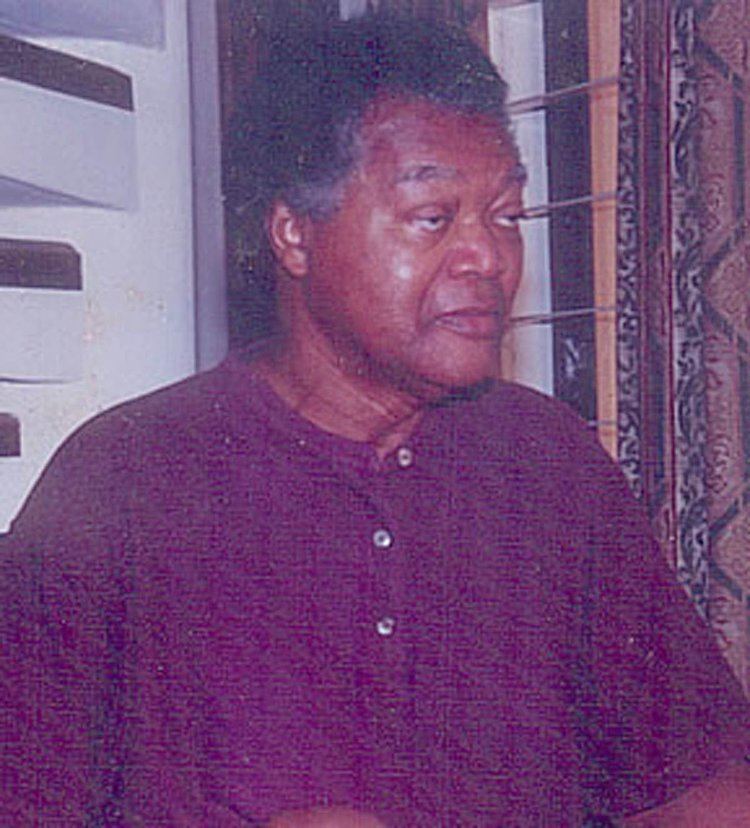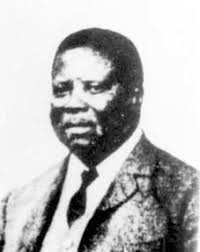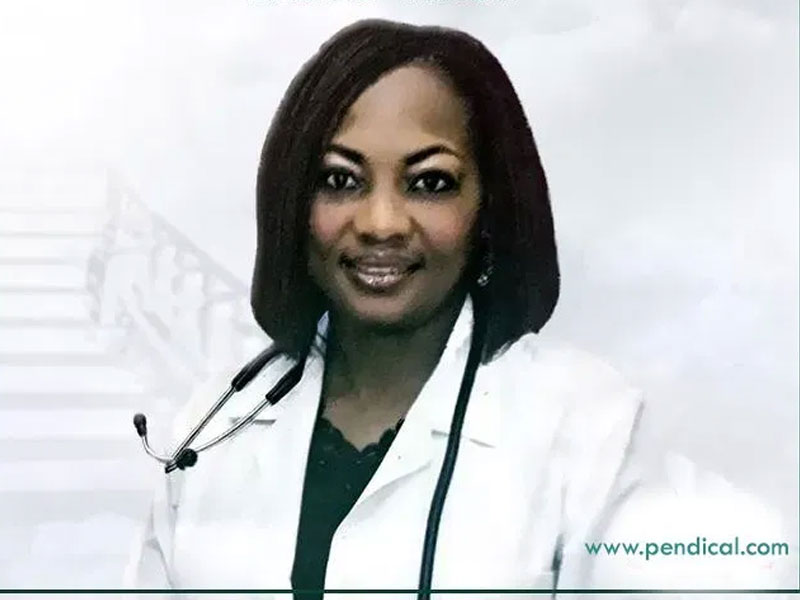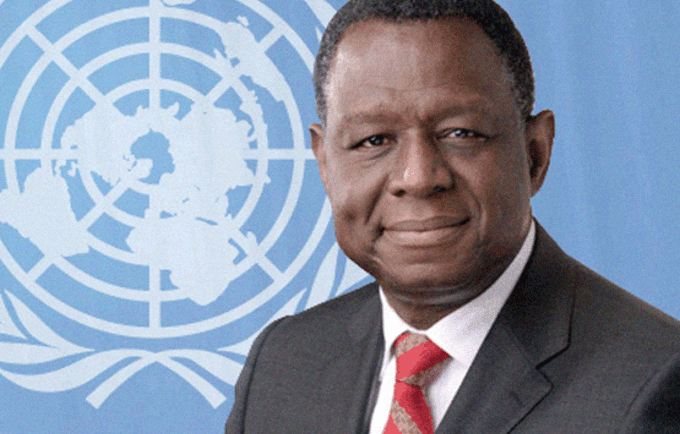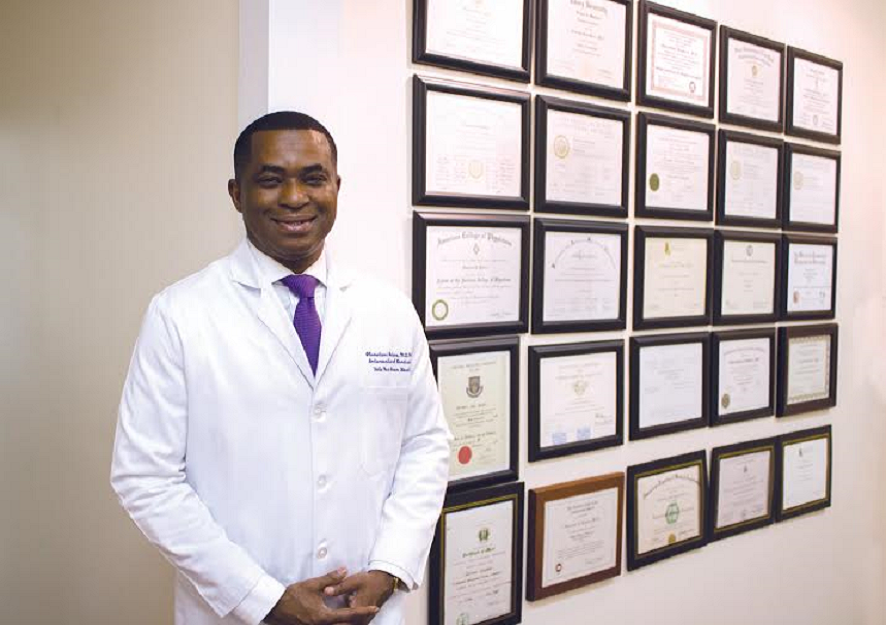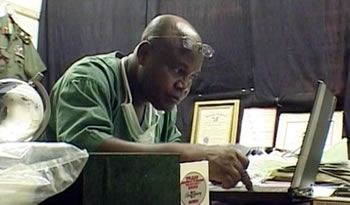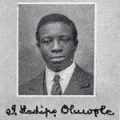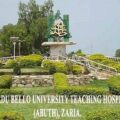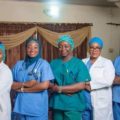The medical profession has been from time immemorial, and universally, it still remains the most learned and the noble amongst the original learned profession. Listed among the primary 3 learned profession physician, scribe (Lawyer), and the priest (Clerics). The profession was the doyen of all other professions in pre-colonial Nigeria. In fact, at that period, the medical profession was at the frontline before the emergence of, and growth of some other professions in Nigeria. Africanus Horton, together with his colleague, William Davies, were the first Nigerians to qualify as medical doctors’ when they simultaneously gained the M.R.C.S. of England at King’s College, London, in 1858. On the other hand, Oguntola Sapara, who obtained the L.R.C.P. and S. of Edinburgh in 1895, was the last and eighth Nigerian to qualify in medicine in the nineteenth century. Between 1858 and 1895, five other Nigerians graduated in medicine, namely Nathaniel King (1874), Obadiah Johnson (1884), John Randle (1888), Orisadipe Obasa (1891), and Akinsiku Leigh-Sodipe (1892). In this article, Public health Nigeria, celebrates the life, times, and achievements of Nigeria’s greatest doctors and their contributions to the sustenance of life and the growth of public health practice.
Dr. Isaac Ladipo Oluwole
Isaac Ladipo Oluwole was born in 1892 to Bishop Isaac Oluwole. Ladipo is the first Nigerian Medical Officer of Health for the Lagos Colony, recognized as the father of public health in Nigeria. He enrolled as a medical student at the University of Glasgow in 1913 and graduated in 1918. Before entering the colonial civil service on his return to Nigeria, he had established himself as a private Medical practitioner at Abeokuta. Ladipo started the first School of Hygiene in Nigeria, at Yaba in Lagos, in 1920.
With the outbreak of bubonic plague in 1924, Ladipo revamped port health Duties and made sanitary inspection a vital instrument for the control of communicable diseases using entirely the Nigerian sanitary inspectors. The first school of health services in Nigeria started the following year. Ladipo is remembered for pioneering school healthy services with school inspections and the vaccination of children. He died in 1953 and a street in Ikeja has subsequently been named after him. The sacrifices and exemplary conduct of Dr. Isaac Ladipo Oluwole one of the first indigenous doctors Nigeria produced earned him the title Father of Public health in Nigeria. Click Here to read More
Professor Olikoye Ransome-Kuti
Professor Olikoye Ransome-Kuti was born in Ijebu Ode on 30 December 1927, in present-day Ogun State, Nigeria. His mother, Funmilayo Ransome-Kuti, was a prominent political campaigner and women’s rights activist, and his father, Reverend Israel Oludotun Ransome-Kuti, a Protestant minister and school principal, was the first president of the Nigeria Union of Teachers. His brother Fela grew up to be a popular musician and a founder of Afrobeat, while another brother, Beko, would become an internationally known doctor and political activist. Ransome-Kuti attended Abeokuta Grammar School, University of Ibadan, and Trinity College Dublin (1948–54). He was a house physician at General Hospital, Lagos. He was a senior lecturer at the University of Lagos from 1967 to 1970 and was appointed Director of child health at the College of Medicine, University of Lagos, and became Head of Department of Paediatrics from 1968 to 1976. He was a professor of pediatrics at the College of Medicine, University of Lagos until his retirement in 1988. He worked as a senior house officer at Great Ormond Street Hospital, London, and as a locum in Hammersmith Hospital in the 1960s.
In the 1980s, he joined the government of General Ibrahim Babangida as the health minister. In 1983 along with two other Nigerians, he founded one of Nigeria’s largest health-focused NGOs – Society for Family Health Nigeria primarily concerned with family planning and child health services at the time. In 1986, he conveyed word of Nigeria’s first AIDS case, a 14-year-old girl who had been diagnosed with HIV. He was minister until 1992 when he joined the World Health Organization as its Deputy Director-General.
He held various teaching positions, including a visiting professorship at Baltimore’s Johns Hopkins University’s school of hygiene and public health. He wrote extensively for medical journals and publications. He won both the Leon Bernard Foundation Prize and the Maurice Pate Award, in 1986 and in 1990 respectively.
He was a Public health pioneer and a distinguished physician. During his tenure as Nigeria’s minister of health, the ministry witnessed several structural and institutional reforms. He announced Nigeria’s first case of AIDS and was not ashamed to declare the cause of his brother’s (Fela Anikolapo Kuti) death when he died of the disease. He laid the foundation and structure for the fight against HIV/AIDS in Nigeria.
Dr. Obadiah johnson
A personification of the subtle wisdom and geniality of the Oyos of Western Nigeria, Obadiah Johnson came from a family distinguished for its ecclesiastical, linguistic, and literary excellence. The fourth child in a family of seven, Obadiah was born at Hastings, Sierra Leone on 29 June 1849. His educational career which began in 1855 at the Day School in Hastings was continued in Nigeria in 1858 as a result of the transfer of his father to Ibadan. After a spell at Kudeti, Ibadan, Obadiah Johnson entered Faji Day School, Lagos, in 1864 where his brother, Nathaniel, was a schoolteacher. Obadiah left Faji in 1868 and became apprenticed to a Lagos 282 Some early Nigerian doctors carpenter. After two years he returned to Sierra Leone to study at the Grammar School in Freetown from where he entered Fourah Bay College in 1877. When that college became affiliated with Durham University in 1876, two annual open scholarships were created to encourage the best students to go to Fourah Bay. Obadiah Johnson, who topped the list of the candidates in a competitive examination, went on to pass the B.A. degree in 1879. Johnson, like Davies, Horton, and King, studied medicine at King’s College, London. A student of exceptional brilliance, he brought off the remarkable feat of winning “all the prizes in science”. He gained the M.R.C.S. and the L.S.A. in April 1884. After graduation, like Horton before him, Johnson was elected by the Council to the Associateship of King’s College. He spent the next two years in Edinburgh and returned to Lagos in 1886. Johnson spent a year in private practice in Lagos, and another as a medical officer of health in Sherbo, Sierra Leone. He then returned to Lagos at the invitation of Governor Moloney, who had wanted to bring an African into the colonial medical service of Lagos. Dr. Johnson, with his glowing testimonials and many diplomas, seemed the right man for the position.
Johnson wrote a thesis on “West African therapeutics” in 1889 for which he was awarded the postgraduate M.D. of Edinburgh University. He described the medicine traditionally practiced among West Africans “who have had no English education”. Johnson wrote from his own experiences and from his first-hand knowledge of Sierra Leone and its neighboring areas and more especially of Lagos and “Yoruba country” where he practiced on his return from Europe. Medicine men were “botanists”; but how in spite of their lack of scientific education, they knew what herbs to use for particular maladies puzzled Johnson.
Dr. Ameyo Adadevoh
Dr. Ameyo Adadevoh was born in Lagos, Nigeria in October 1956. She spent the majority of her life in Lagos, Nigeria. Her father and great-grandfather, Babatunde Kwaku Adadevoh and Herbert Samuel Macaulay, were both distinguished scientists. Herbert Macaulay is one of the founders of modern Nigeria. Her grandfather was from the Adadevoh family of the Volta Region of Ghana, to which she was very much connected, though she lived in Lagos. Her father Babatunde Kwaku Adadevoh was a physician and former Vice-chancellor of the University of Lagos. She was also the grand-niece of Nigeria’s first president as well as a great, great, great-granddaughter of Ajayi Crowther. Adadevoh worked at First Consultant Hospital where a statue of her great-grandfather exists.
She is credited with having curbed a wider spread of the Ebola virus in Nigeria by placing the patient zero, Patrick Sawyer, in quarantine despite pressures from the Liberian government. When threatened by Liberian officials who wanted the patient to be discharged to attend a conference, she resisted the pressure and said, “for the greater public good” she would not release him. She is known for preventing the Nigerian index case from leaving the hospital at the time of diagnosis, thereby playing a key role in curbing the spread of the virus in Nigeria. On 4 August 2014, it was confirmed that she had tested positive for Ebola virus disease and was being treated. Adadevoh paid the ultimate price in service of her fatherland when she died in the afternoon of 19 August 2014.
Professor Babatunde Oshotimehin
Professor Oshotimehin, was a former Minister of Health in Nigeria and Executive Director of the United Nations Food and Population Fund (UNFP) was an Under-Secretary-General of the United Nations until his death. Babatunde Osotimehin was born in February 1949 in Ogun State. He attended Igbobi College between 1966 and 1971. He studied medicine at the University of Ibadan, Nigeria. In 1979 he moved to the UK for a doctorate at the University of Birmingham, United Kingdom, and from 1979–1980 was a fellow in endocrinology at Cornell University Graduate School of Medicine, New York, United States.
After his medical studies at the University of Ibadan, he received a doctorate in medicine from the University of Birmingham, United Kingdom, in 1979. Dr.Osotimehin was a former Provost of the College of Medicine at the University of Ibadan. Osotimehin’s interests were youth and gender, and he advocated for reproductive health and reproductive rights, particularly within the context of the HIV epidemic. One of his strengths was his reliance on data and evidence.
His commitment gave him opportunities to serve as chair and member of several academic and health organizations. He served as the Director-General of the National Agency for the Control of AIDS (NACA). As chairman of NACA, he oversaw the development of systems that, today, manage more than US$1billion.
Dr. Olurotimi Badero
Olurotimi Badero was born in Lagos, Nigeria, the seventh of nine children born to Chief Eliab Olufemi Badero and Stella Taiwo Badero. Olurotimi is a Yoruba name meaning God stays with me. His father was a tailor who later became a typist and administrative manager at SCOA motors. His mother worked with Barclays Bank as a secretary in the early 1970s.
He obtained his medical degree at Obafemi Awolowo University before relocating to the United States. He completed an Internal Medicine residency at the State University of New York (SUNY), Downstate Medical Center in Brooklyn, New York. followed by a fellowship in Nephrology and Hypertension at Emory University School of Medicine in Atlanta, Georgia, and a three-year fellowship in Cardiovascular Medicine at SUNY Downstate.
Dr. Olurotimi John Badero made Nigeria proud after his recognition as the only fully trained and board-certified cardio-nephrologist (combined kidney and heart specialist) in the world. Dr. Badero is the Executive Director, Cardiac Renal & Vascular Associates. He is also the Medical Director of St. Joseph Hospice. He is on the global Advisory Board of Therapeutics experts on Thrombosis and Atherosclerosis, Merck Pharmaceuticals U.S.A.This genius and top Nigerian cardiologist based in New York Badero, has been named among the top interventional cardiologists in the United States, according to a prominent rating organization for the medical profession in the US. Castle Connolly, the organization which publishes a leading annual publication of distinguished US doctors listed Badero among the top US doctors based in the New York metro area which includes New York, New Jersey, and Connecticut states.
Brig General (Dr). Oviemo Ovadje
Dr. Otu Oviemo Ovadje born in December 1954 in Delta State, Nigeria, is a highly accredited Nigerian medical doctor who invented the Emergency Auto Transfusion System (EAT-SET): an affordable, simpler, and effective blood auto-transfusion system. He pioneered this invention at the Military Hospital Ikoyi Lagos when he was working with the Benin Teaching Hospital and the University Hospital in Lagos.
Auto-transfusion medical mechanism is a technique that has already been in use in developed countries. However, it has little to no existence in developing nations due to the fact that it is expensive, complicated to use, and requires electricity to work; something that most parts of the African countries are still lacking.
He was declared the Best African Scientist in 1995 before African Heads of States when he won the World Intellectual Property Organisation and Organisation of African Unity Gold Medal for scientific work designed to save women who usually die from abnormal pregnancy (ECTOPIC GESTATION). He also won the Promex Silver Medal in Geneva in April 1998 for designing a safety cap syringe for the prevention of Needle Prick injuries among doctors and nurses. He is a three-time winner of the Chief of Army Staff Commendation Award of the Nigerian Army for professional excellence and various non-medical awards. He was Chief of Delegation – Nigeria, to the World Congress of Military Medicine at various times between 1994 and 2014. He was elected into membership of the following bodies.
He became the first African to win the World Health Organisation Sasakawa Gold Award (Geneva Switzerland) in the year 2000. In 2001, he won the Arco Gold Award at Dorchester London, England. He became a JP Morgan Chase Laurent in San Jose, California, USA (2002). He was declared the Most Celebrated Professional in Nigeria in 2014 (Abuja) and was decorated among 100 Nigerians who had contributed to the growth and development of Nigeria since 1914 by the Presidency (2014).
He holds three national honorary awards; Member of Order of the Niger (MON)1998; Officer, Federal Republic of Nigeria (OFR) – 2000 and National Order of Productivity Merit Award (NOPM) – 2001. He holds the Army Council Medal, 2001. He became a Justice of Peace (2006).
